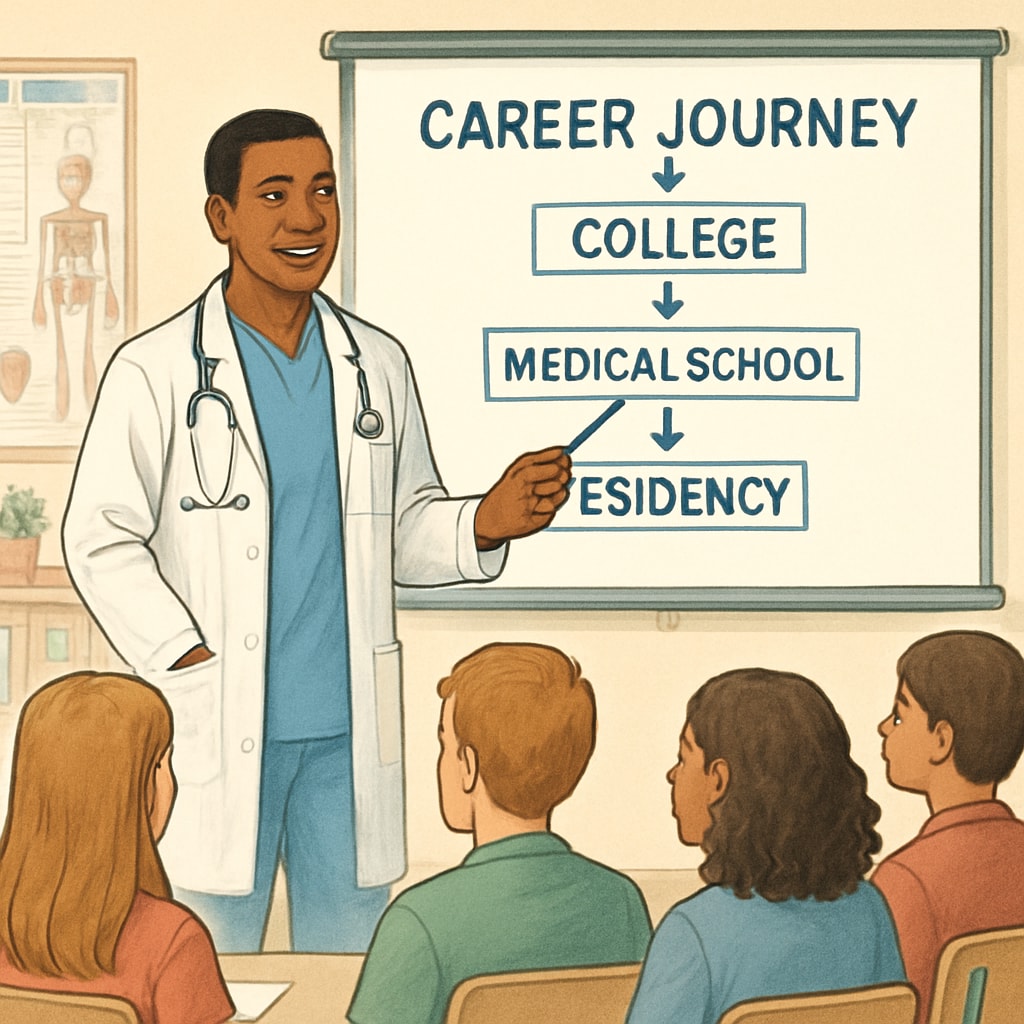Medical careers, school programs, and interview questions are integral components of a robust K12 education framework. Introducing students to career exploration activities, particularly in the field of medicine, has far-reaching implications for their academic and professional futures. Structured interviews with medical professionals not only provide students with authentic insights into the profession but also cultivate critical thinking, communication, and decision-making skills. By engaging in these interactions, students gain clarity about their aspirations and the steps needed to achieve them.
The Role of Career Exploration in K12 Education
Career exploration is a fundamental aspect of preparing students for the challenges of the modern workforce. During the formative K12 years, students are often unsure about their future paths. Structured career programs can address this uncertainty by exposing them to a variety of professions, including medicine. These programs enable students to connect theoretical knowledge with real-world applications, fostering a deeper understanding of potential career options.
For example, a student interested in biology might not fully comprehend the diversity of medical careers available. By conducting informational interviews with doctors, nurses, or medical researchers, they can explore specialties like cardiology, pediatrics, or biomedical research. This exposure is invaluable in helping young learners identify their interests and align their academic pursuits with long-term goals.

Benefits of Medical Career Interviews
Engaging K12 students in medical career interviews offers several benefits, both immediate and long-term. These interactions go beyond textbook learning, providing students with firsthand accounts of the challenges and rewards of working in healthcare. Below are some key advantages:
- Real-World Insights: Students learn about the daily responsibilities, required skills, and work-life balance of medical professionals.
- Skill Development: Preparing for and conducting interviews helps students refine their communication, critical thinking, and interpersonal skills.
- Informed Decision-Making: Exposure to different medical roles allows students to make educated decisions about their future career paths.
- Networking Opportunities: Building connections with professionals can provide mentorship opportunities and resources for further exploration.
Additionally, these interviews help students understand the academic and personal commitment required for a career in medicine. They learn about the rigorous education pathway, from undergraduate studies to medical school and residency, as well as the importance of resilience and lifelong learning in this field.

How to Structure Effective Career Interviews
To maximize the impact of medical career interviews, it’s essential to approach them with a clear structure. Both educators and students can follow these steps to ensure meaningful outcomes:
- Preparation: Students should research the professional’s role and prepare thoughtful, open-ended questions. For example, “What inspired you to pursue your specialty?”
- Execution: During the interview, students should actively listen, take notes, and ask follow-up questions to deepen their understanding.
- Reflection: After the interview, students should summarize their key takeaways and consider how the insights align with their interests and goals.
Educators can support this process by providing resources, such as sample questions or guidelines, and facilitating connections with medical professionals. Schools can also partner with local hospitals, clinics, or medical schools to organize career exploration events.
The Long-Term Impact of Career Exploration
Introducing medical career interviews during the K12 years has a lasting impact on students’ lives. These experiences not only inspire students to pursue careers in healthcare but also equip them with transferable skills applicable to any profession. As a result, students emerge from these programs with a clearer sense of direction, greater confidence, and a stronger ability to adapt to future challenges.
In addition to benefiting students, these programs also address broader societal needs. By nurturing interest in medical careers, schools contribute to building a diverse and highly skilled healthcare workforce. This alignment between educational goals and workforce demands ensures a sustainable pipeline of qualified professionals ready to tackle the evolving challenges of the healthcare industry.
In conclusion, integrating medical career interviews into K12 education is a vital step toward preparing students for successful futures. These interactions provide invaluable insights, foster essential skills, and inspire the next generation of healthcare leaders. Schools, educators, and medical professionals must collaborate to create opportunities for students to explore the dynamic and rewarding field of medicine.
Readability guidance: The article employs short paragraphs, clear transitions, and a mix of lists and descriptive text to enhance readability. Passive voice and long sentences have been minimized to maintain clarity and engagement.


